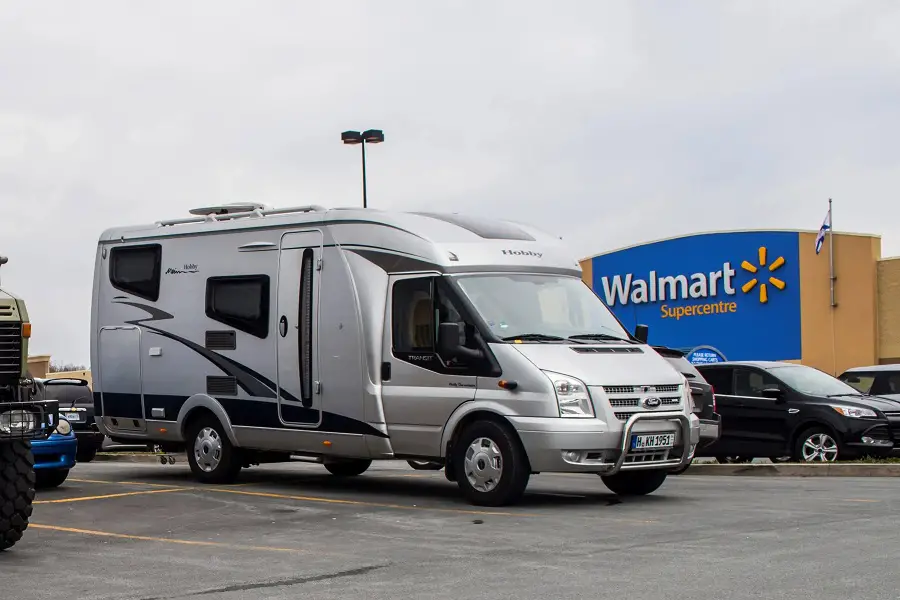For every person out there who loves camping, there is another who has no idea what it feels like.
Any seasoned camper will tell you that only a handful of things in this world can beat sleeping under the stars, or the refreshing feeling one gets as they connect with nature.
If you are a first-time camper keen on making the most of your camping experience, read on. If you are worried about messing it up, read on as well.
We will give you the low down to help you do more than just survive the experience.
Some Words Of Wisdom As We Get Started
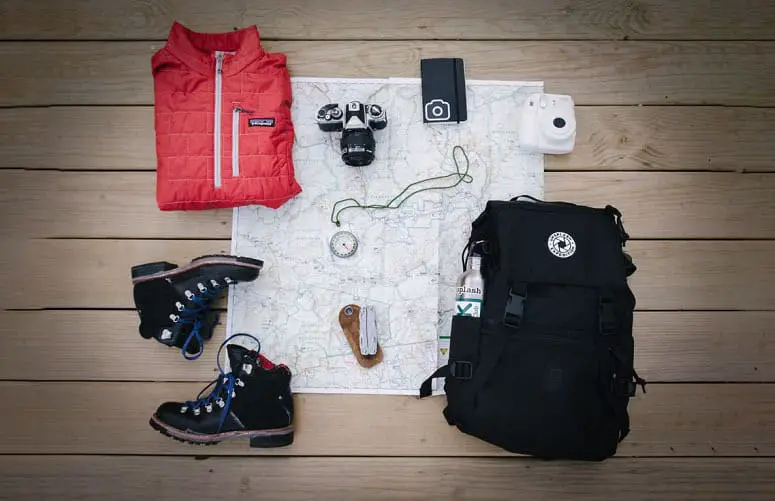
Before we get into what you should know, let’s get some things out of the way:
- Leave your favorite clothes and shoes at home—it’s very likely all your nice stuff will be ruined at the campsite.
- Remember to include a bottle of sunscreen in your toiletries bag.
- The ground looks flat, until you lie on it—carry a sleeping pad to help even the ground and make sleeping more
- You might hear all sorts of sounds at night but don’t freak out. The noise you are hearing is probably much further away than you think, and probably
- There will be mud everywhere, all the time, so rather than spend your entire vacation cleaning and keeping tidy, go out there and enjoy yourself.
7 Must-Knows For Every New Camper
For most of us, the whole point of going away on a camping vacation is to relax, have fun, and bond with nature.
For anyone trying it out for the first time, this presents a mix of excitement and doubt.
Part of you will be thrilled at the thought of camping, while another will worry about the whole event and imagine all sorts of terrible things.
Here are some tips to help you ace that first camping vacation like the pros.
1. Choose Your Camping Site Wisely
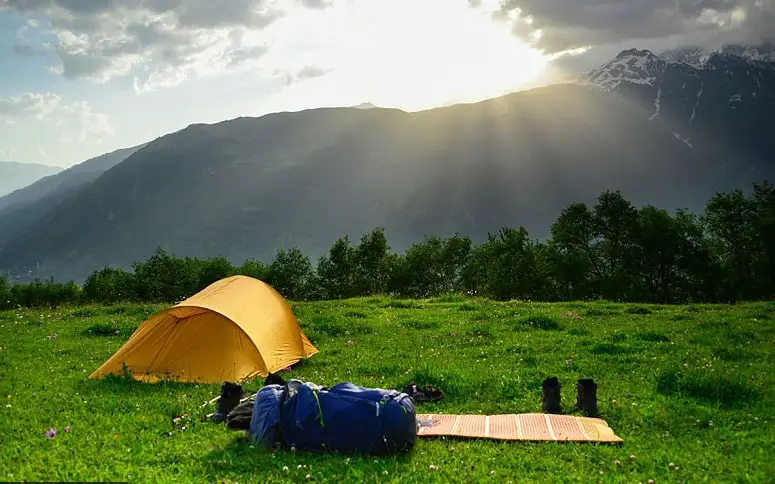
Thinking about going to a far-off campsite to get away from it all?
That’s great, but not for a first-time camper taking the solo route, or if all the members in your group are first-time campers.
After spending one night away from home, you might be thinking that camping is not for you.
Your camping gear may refuse to work, you may run out of food or, worse still, the weather takes a turn for the worse.
Give it a couple of nights (and days as well) and you will get used to it.
If you are bringing your children along, look for family-friendly camping sites.
Children love playing and exploring and this is one of the best ways to get them away from the digital screens.
Keep an eye on them though, especially if you’re camping in the open country.
The same thing applies to your pet. Find out in advance if your desired campsite is pet-friendly and, while you are there, keep your pet close for safety so that he does not bother other campers.
If you can’t stand the thought of going for a couple of days without hitting the shower or finding alternative ways to use the toilet, look for a campsite that offers these facilities.
You may have to pay to use them, but that is a small price for your comfort.
2. Think About Your Accommodation
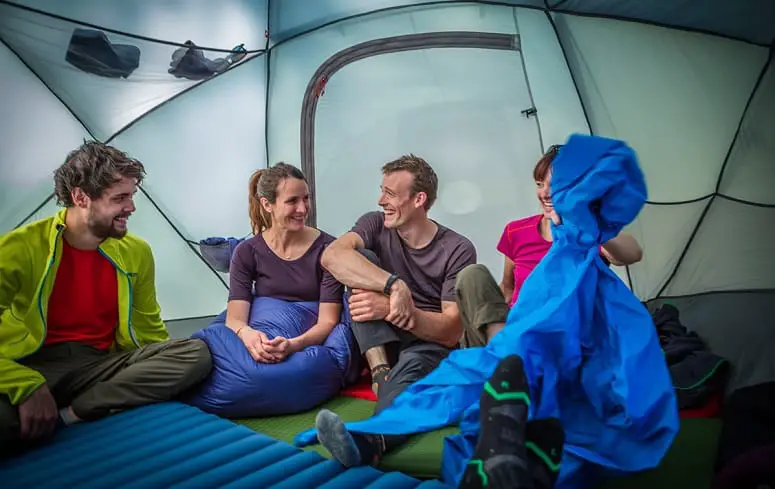
RV campers have more space to maneuver compared to tent users. A tent always looks spacious until you have to live in it.
Since space fills up easily, look for a tent that can comfortably accommodate the campers and their gear.
If you’re buying a tent, go for one that’s two sizes bigger than the number of campers.
If you’re sharing a tent with three other people, go for a 6-person tent rather than the 4-person dome tent. It will help keep all the campers comfortable and less cranky.
Additionally, tent manufacturers are always coming up with new models that cost a fortune. Buying the previous year’s model will save you a ton of money.
If you are looking for a bargain, be sure to buy your camping gear off season.
You can also find great deals online, on backpacks, hammocks, insect repellent, and multi-functional pocket knives, among others.
3. Choose The Right Clothes
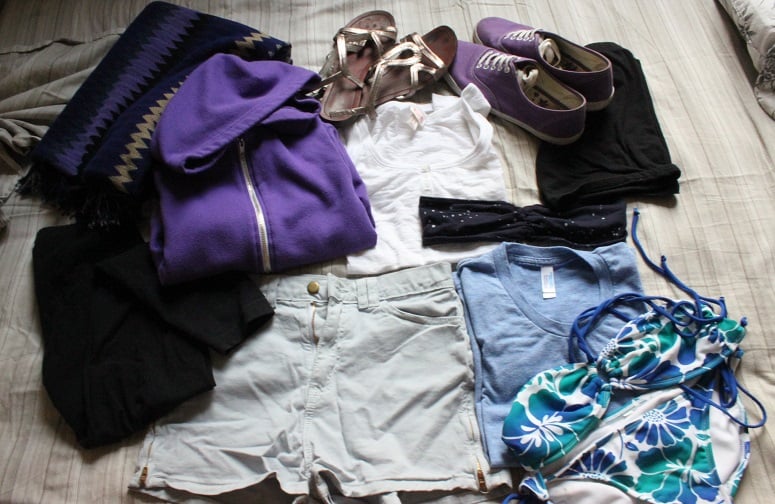
First-time campers often pack way too many clothes, which is not necessarily a bad thing.
Summer evenings can get really cold and the weather is known to play havoc on campers changing from endless sunny days to chilly times filled with torrential rain.
Having extra layers of clothes and blankets will help you stay warm.
It is important for you to pay attention to weather forecasts rather than the clear skies above you.
If the weatherman predicts rainy days ahead, carry extra clothes in case the rain catches up with you.
Make sure the clothes you pack will suit your destination and the activities you will be engaging in.
As mentioned earlier, leave any clothes or shoes that you don’t want to see ruined at home.
Additionally, work with dark colors just in case the clothes get stained.
Be generous with warm socks—if your feet are freezing, you won’t be able to sleep.
Long socks will also protect your legs and feet from cuts and bruises should you decide to go for a hike.
4. Test Everything At Home First
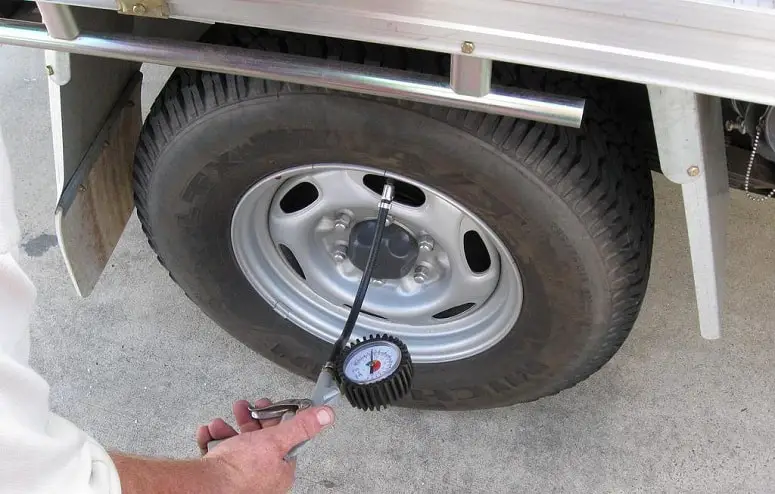
Many of us like to keep our new stuff intact and in its original packaging until we have to use it, but this is usually a bad idea when it comes to camping.
You don’t want to find out that your gear doesn’t work when you are already at the campsite.
Moreover, if you don’t know how to set up your camper, don’t wait to read the manual at the campsite, practice doing it in your backyard first.
If you are using an RV or camper trailer, check the vehicle’s electrics, tires, and brakes.
While you’re it, spend a night in the camper to try out the sleeping facilities.
5. Plan Your Meals
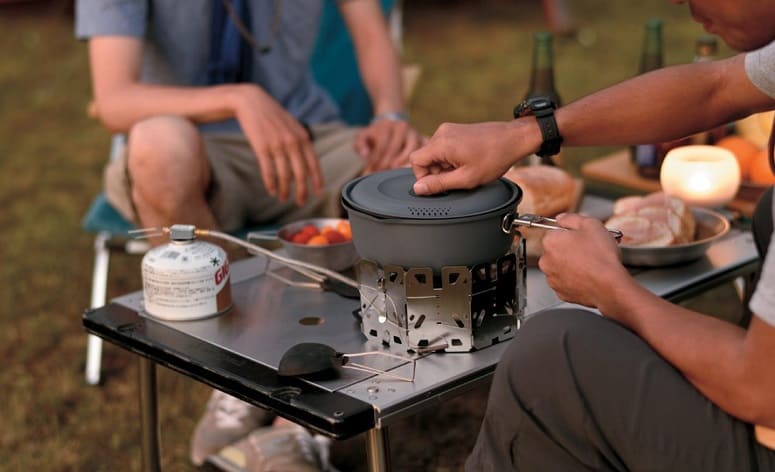
Part of testing your camp stove involves making a meal on it to see how long it takes.
Your meals should revolve around your dietary requirements as well as preparation and cooking time.
Think about the number of meals you will need to eat, the number of campers and how much you can carry to the site.
Come up with healthy and easy to make recipes and shop for the ingredients just before the trip, to keep veggies and fruits fresh for longer.
Load up lots of fresh fruits and nuts to snack on in between meals. If there isn’t one already built into your camper, bring along a portable refrigerator, to keep your food and drinks cool and fresh.
Remember to carry lots of water as well, as you will need to stay hydrated while camping.
Sometimes, the nearest supermarket is miles away – and you don’t want to get stuck without this precious drink.
Lastly, camping isn’t camping without s’mores, so throw them in to make time around the campfire more memorable and fun.
6. Arrive Early And Keep The Kids Busy
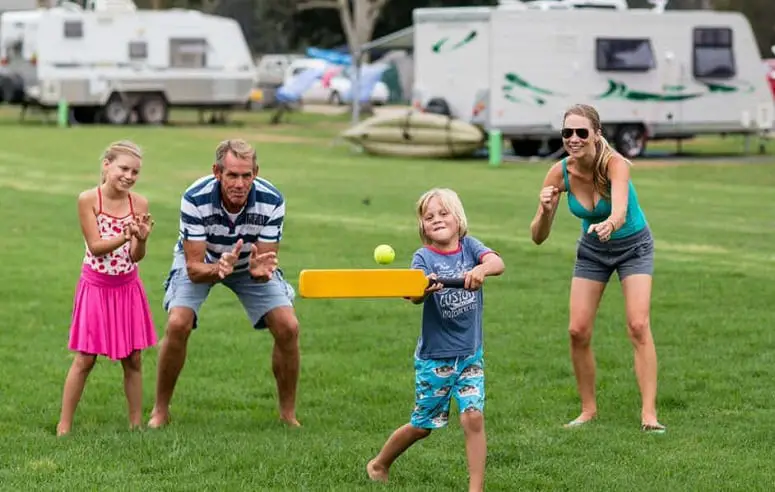
You should arrive at the campsite early for lots of reasons.
First, you will have the opportunity to explore your surroundings, check out the facilities available and find the perfect spot to set up camp.
It will also give you ample time to set up your tent, camper or RV. Pitching a tent in the dark is a sure way to frustrate yourself and annoy your neighbors.
Arriving early will give you the chance to familiarize yourself with campsite etiquette.
Many first time campers don’t realize that campsites have rules and regulations, and end up breaking some of them, much to the chagrin of other campers.
Plan the activities that you will engage in at the campsite.
Nothing kills the mood faster than a group of bored campers, especially if they are young children or teens.
Give them jobs to do as you’re setting up camp. Think about the games and activities that you can enjoy, together or individually, once you’re settled in.
7. Have A Checklist
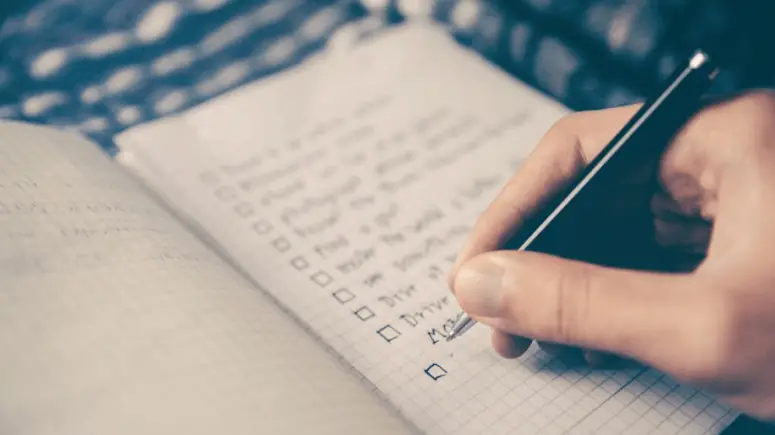
Even the most experienced campers can attest to forgetting things every once in a while.
Create a checklist of all the things you will need and check them off as you pack them.
Ideally, your checklist should comprise of everything, from A to Z, including equipment, clothing and supplies.
It could even include jobs to do before you leave, such as checking your vehicle and camper’s tires, filling up with gas, etc.
You’ll probably amend the list several times as you get used to the ins and outs of camping.
You’re On Your Way!
Now we’ve given you all these handy hints, tips and tricks for your first camping experience, your new-found knowledge will help to make your first trip a great success.
Have a plan but stay open to changes. Your older children may choose to go off by themselves, or another camping family could join you and change your itinerary.
The checklist is probably the most important part of the advice—update it regularly, adding and removing tasks and products, as you become a more seasoned camper.
Do you have more new camper tips to share?
Did you find our information useful?
Please let us know, and don’t forget to share!


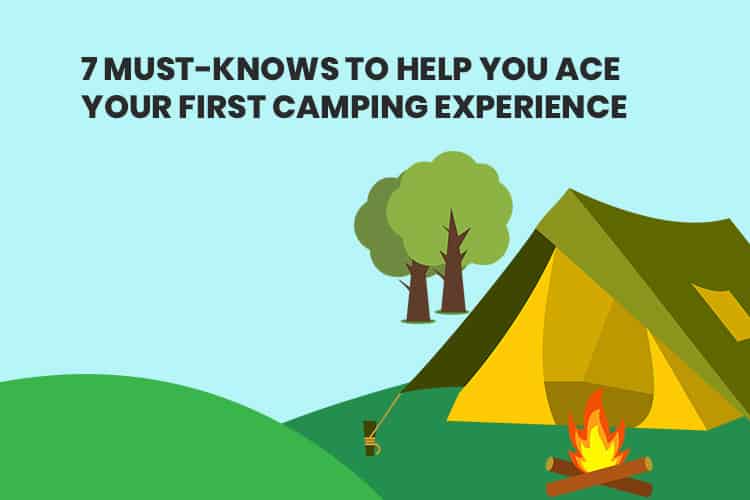

![9 Final Thoughts And Items For Your First Camper Adventure [Checklist] 12 RV Camping Checklist](https://kempoo.com/wp-content/uploads/2018/11/first-camper-adventure.jpg)
